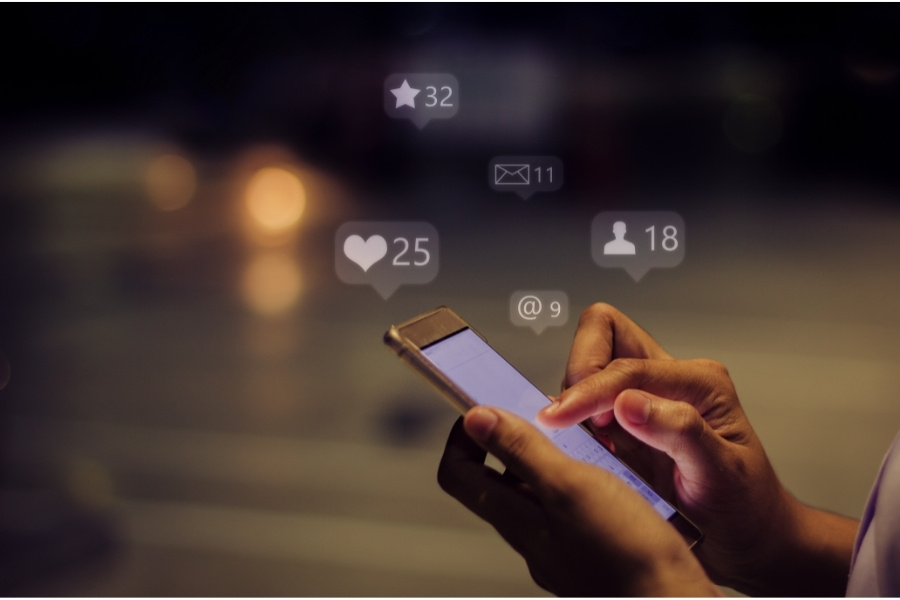Contribution from Shobha Nihalani
The reality of our times is that not everything we see online is true. The fact about social media is that its very purpose is to share whatever grabs and holds our attention. At times those kinds of social interaction affect us internally.
For example, when we scroll through posts of perfect images or newsfeeds, we feel there is a lack in ourselves. The feelings creep in and create diminished self- confidence, self-worth and self-respect.
How we esteem ourselves is crucial to our mental health. It is the foundation of our inner strength, from where we can draw upon our resources of motivation, courage and confidence.
A mental framework for self-esteem
What is self-esteem? If we take a surface-level viewpoint, it is our opinion of ourselves, it is how we evaluate ourselves. On a deeper level, self-esteem is a basic human need, and forms a foundation of our inner selves. It is the gap between our current image and ideal image. If the gap is wide, we suffer from low self-esteem, if the gap is narrow, we evaluate ourselves positively.
According to psychologists, self-esteem tends to fluctuate daily. With every external input, we are affected internally. If we have a healthy sense of self, we can pursue our goals. But, if our self-esteem has taken a hit, we are unable to function to the best of our ability. We tend to compare ourselves with others, criticize ourselves, and then feel we are not good enough.
Self-esteem has become all the more relevant in our hyper-connected technologically savvy world.
Social media allows us to lie by omission

When we interact with others online, we put up a front, we prefer to present an image of success and happiness. No one feels like sharing those low moments of self-doubt and imposter syndrome. We are intent in continuing to appear perfect.
Psychologists have a term for the way we lie to ourselves and others. It is also referred to as reputation management, which is creating an image for others to see. This kind of management refers to how others are perceiving me, what do they think about me, or my life and so on. We are constantly editing the truth and then tailoring ourselves into an acceptable form for other people. Often, we are not aware we are doing that.
When we lie to ourselves, we lose sight of our own identity, and try to live up to the standards of the fake self-image. It then becomes harder to maintain an image that is just meant for the outside world.
What happens when the façade fails to achieve its goal?
We fall apart. We have fallen in our own eyes simply because how we esteem ourselves relies on how others perceive us. Our self-esteem depends on others validation of ourselves, which then makes our feelings a servant to how others judge us.

Research shows that most apps on our smart phones are designed to be addictive. The apps are sharing news feeds that affect us, and we in turn share feeds that affect others. This domino effect creates mindsets that are distressed, anxious, exacerbated by a harsh inner critic.
When we scroll through social media, many posts create an impression on our minds that tells us to be someone we are not. These are the kinds of news feeds designed to upset us, to trigger feelings of lack.
A teenager said that, “We are taught from a young age to ‘glow up’ to be attractive, and if we are not meeting certain social standards, then we are not good enough, we are unlovable, unworthy or not valued. By taking a certain pill, using a certain product, changing our physical appearance, it will make us a better person.”
This kind of thinking implies that we are in constant self-fix-it mode, and over time becomes a habit, which then leads to constant self-deprecation. The feeling of ‘not good enough’ crops up at every crossroad in life.
What happens when we set such high standards of ourselves?
Social media creates dysfunctional perfectionism
Setting goals and pursuing them is a good thing. However, at times the standards are set so high that they are impossible to achieve. Perfectionism refers to a mindset that is in a constant dissatisfied state, no matter how much is accomplished, there is reason for it to be not good enough. We then turn against our own selves. It becomes stressful when we cannot reach arbitrary imaginary standards set by our own demanding self. The anxiety and negativity that perfectionism brings with it can get overwhelming.
It is an all-or-nothing attitude towards achieving goals. Many young people are constantly pushing themselves to do and be the best. According to research studies, social media has come up as one of the aggravating causes of this pressure to be perfect. The negative focus leads to comparing oneself to others, obsession, fear of failure, and chronic stress. This doesn’t mean that we have to avoid scrolling through social sites. Avoiding the issues doesn’t make them go away.
We have to live with social media, we can curtail the use of our devices, however that may not be possible in the long run. Our mobile devices have become a valuable extension of our lives, we use them for multiple purposes. The mobile has offered us a camera, phone banking services, Zoom calls, online meetings, and many more. We don’t just play games on our phones; we use them for serious business too.
Insights into the smartphone generation

The first smartphone hit the market in 2007. It became smarter as the years flew by. Advances in technology has given us maximum flexibility with the small screen, and therefore the demand for smartphones have exploded. With smartphones there is instant gratification, we experience an immediate high which keeps us hooked on our little gadgets of pleasure.
The greatest usage, according to the Global Web Index, is by the Gen Zs, those born between 1997 and 2012. They have never known a world without smartphones, and therefore it is a natural part of their lives. The Gen Zs have made good use of the mobile devices, in ways that are more productive.
Recent research shared the positive impact of smart phones in pandemic times, keeping us abreast of news, market businesses, and enabling us to connect with families globally.
However, there are many studies that share opposing views on the benefits of social media. Research shows that most of the time we use social media to lift our confidence and self-esteem. Once we are offline, we lose that sense of self-worth. We are dependent on the likes, comments, and attention online, such that we feel bad when we are not getting the constant validation. Soon we forget that our own opinion matters more. Deceitful images give us a point of view that is unreal, we strive to match them. We then compare and compete with others, forcing ourselves to be another identity. We don’t see the truth behind the digital curtain.
Whichever way you look at it, young or old, all generations are connected to their mobile devices. This is the way of the world. We all have to learn to be more discerning and not accept everything we see as the whole truth.
If we are aware of our reactions internally, we can use the gadgets for what they are, a useful tool, like any other appliance or electronic item in our home.
Awareness and acceptance
The truth of who we are is more important to ourselves. Having the ability to accept ourselves despite flaws is crucial when we face constant attacks on our self-esteem. During those moments when the mind gives us reasons to hate ourselves, we need to take a pause and become aware of why it happens. Any kind of self-hate can lead to mental health issues.
Becoming aware of our internal landscape will give us clarity of what we can do to change. We have every right to feel good about who we are as we are.
If friends or social media opinions matter more than your own, then you need to rethink what you can do to be positive about yourself. Are the people you associate with supportive or critical? Are they focusing on your negatives or motivating you? Being around people who are like-minded, who are supportive and encouraging, can help you develop and maintain your self-esteem.
Social media or not, ultimately the reality is that each one of us is responsible for our own internal transformation. And to do that we must learn to be compassionate with ourselves.
💡 Read more advice from Shobha Nihalani on self-esteem 💡

Shobha Nihalani is a multi-genre author, ghost-writer, and mindset coach. She has been writing for over 25 years. Her recent book on self-esteem – Reboot, Reflect, Revive: Self-Esteem in a Selfie World – has become popular and is recognised for raising awareness on self-esteem.
Shobha believes that the way we communicate with ourselves, and others, has the power to impact our lives. Her expertise as a writing consultant and writer’s coach has given her the opportunity to guide people to acknowledge their own amazing potential to be unique, creative, and resilient in achieving their goals.
Learn more about Shobha Nihalani at www.shobhanihalani.com or contact her at shobhanovels@gmail.com.
Disclaimer: The opinions expressed in this publication are those of the authors and do not necessarily represent the views of The HK HUB.
Header image credits: capturenow via Canva




